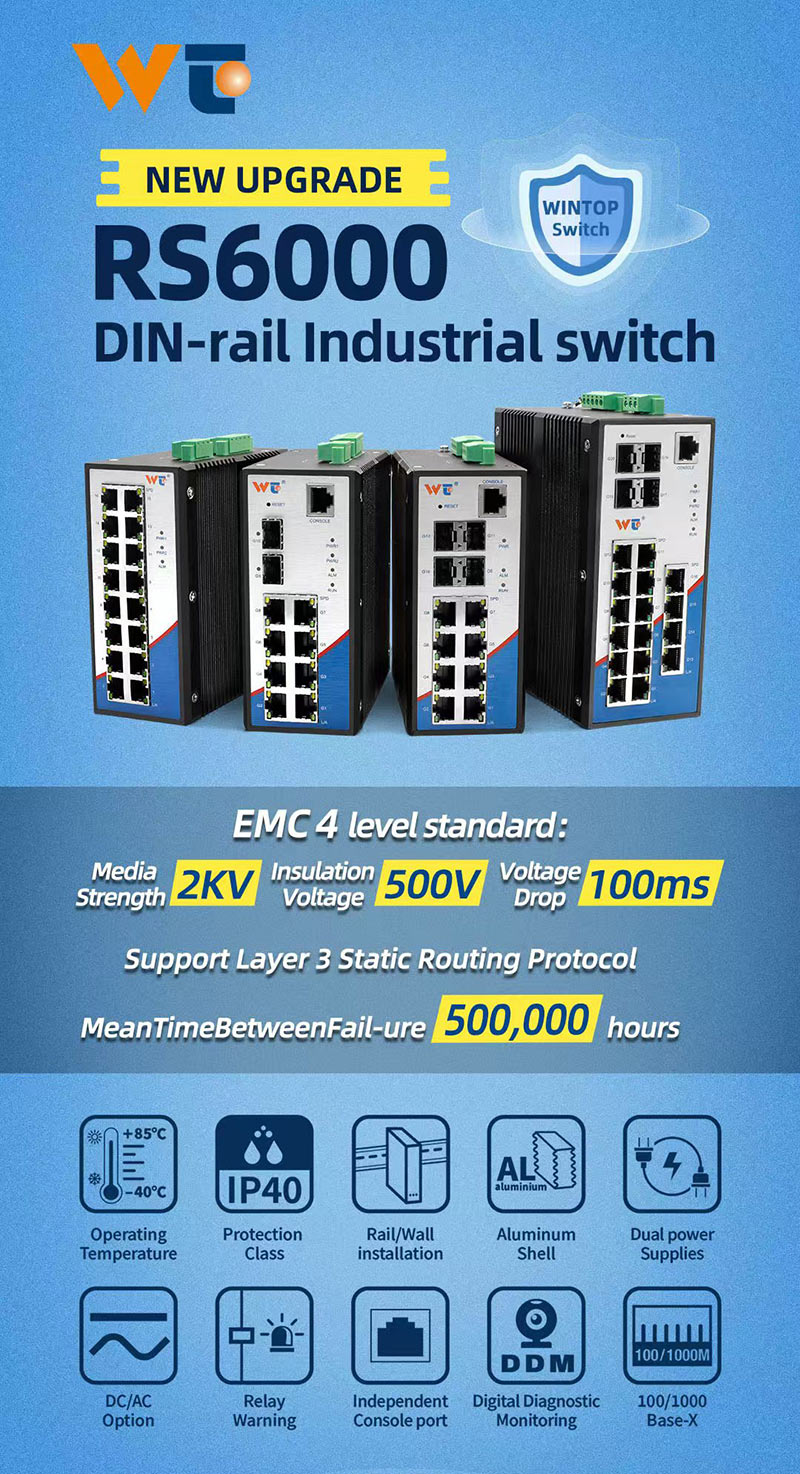Industrial Switch Solutions in Electronic Police Systems: Revolutionizing Traffic Management
In a world where urbanization is accelerating at an unprecedented pace, the efficiency of traffic management systems has become a critical concern. Electronic police systems, which integrate advanced surveillance and control technologies, have emerged as a powerful tool for maintaining order on the roads. At the heart of these systems are industrial switches—robust, reliable, and capable of handling the intense demands of modern traffic networks. This article delves into the pivotal role of industrial switch solutions in electronic police systems, exploring their significance, challenges, and the superior advantages they hold over conventional products.
The Backbone of Smart Traffic Management
Imagine a bustling city intersection during peak hours. The sheer volume of vehicles, pedestrians, and cyclists navigating the junction creates a complex web of movement. Electronic police systems utilize a combination of cameras, sensors, and communication devices to monitor and manage this chaos. Industrial switches act as the central nervous system, ensuring seamless data transmission between various components.
These switches must operate flawlessly under harsh conditions, from extreme temperatures to constant vibrations. Industrial switches are designed with ruggedness in mind, featuring robust housings and advanced cooling mechanisms to withstand the rigors of outdoor environments. Unlike standard commercial switches, which may falter under such conditions, industrial switches ensure uninterrupted performance, a crucial factor in maintaining traffic flow and safety.
Bridging the Gap: Overcoming Connectivity Challenges
One of the primary challenges in electronic police systems is the need for reliable connectivity. Traffic cameras and sensors are often spread out over vast areas, requiring a network that can handle long-distance data transmission without loss of signal quality. Industrial switches excel in this area, offering high-bandwidth capabilities and low latency to support real-time data processing.
Traditional switches may struggle with the high data loads and the need for rapid data exchange between multiple devices. Industrial switches, on the other hand, are equipped with advanced networking features such as VLANs (Virtual Local Area Networks) and QoS (Quality of Service) prioritization. These features ensure that critical data, such as video feeds from traffic cameras, are transmitted with the highest priority, preventing delays and ensuring timely response to incidents.
Resilience in Adverse Conditions
Traffic management systems must function reliably regardless of environmental conditions. From scorching summer heat to freezing winter temperatures, the components of electronic police systems are exposed to a range of challenging conditions. Industrial switches are built to endure these extremes, with temperature ratings far exceeding those of typical commercial switches.
Moreover, industrial switches are designed to resist dust, moisture, and electromagnetic interference, factors that can easily compromise the performance of less robust equipment. This resilience ensures that electronic police systems remain operational even in the harshest environments, providing consistent and accurate traffic monitoring and control.
The Power of Integration: Simplifying Complex Networks
Electronic police systems are not standalone entities; they are part of a broader network of smart city solutions. Integrating these systems with other urban infrastructure, such as public transportation and emergency services, requires highly adaptable and scalable network solutions. Industrial switches offer the flexibility needed to integrate various technologies seamlessly.
For instance, Power over Ethernet (PoE) capabilities allow industrial switches to power cameras and sensors directly through the network cable, eliminating the need for separate power lines and simplifying installation. This integration reduces both the complexity and cost of deploying electronic police systems, making them more accessible and efficient.
Real-World Impact: Transforming Urban Mobility
The impact of industrial switch solutions in electronic police systems extends beyond technical advantages. By enabling more efficient traffic management, these systems contribute to safer and more orderly urban environments. Reduced traffic congestion leads to lower emissions, improving air quality and contributing to the overall well-being of city residents.
Consider the example of a city that has implemented an advanced electronic police system using industrial switches. Traffic accidents have decreased by 20%, emergency response times have improved by 15%, and overall traffic flow has increased by 25%. These tangible benefits highlight the transformative power of industrial switch solutions in creating smarter, more sustainable cities.
A Glimpse into the Future: Evolving Technologies
As technology continues to evolve, industrial switch solutions are also advancing. The advent of 5G networks and the Internet of Things (IoT) is set to revolutionize electronic police systems further. Industrial switches will play a crucial role in supporting these technologies, providing the necessary bandwidth and reliability for next-generation traffic management solutions.
Imagine a future where autonomous vehicles communicate seamlessly with traffic management systems, navigating the roads with precision and efficiency. Industrial switches will be at the core of this vision, enabling the high-speed, low-latency communication required for such advanced applications.
Conclusion: Driving Progress with Industrial Switch Solutions
In the realm of electronic police systems, industrial switch solutions are not just components; they are the lifeblood that ensures the smooth operation of complex traffic networks. Their robustness, reliability, and advanced features make them indispensable in the quest for smarter, safer cities.
By overcoming connectivity challenges, withstanding adverse conditions, and simplifying network integration, industrial switches empower electronic police systems to achieve their full potential. As we look to the future, these solutions will continue to drive progress, transforming urban mobility and enhancing the quality of life for city dwellers.
In a world where every second counts, industrial switches ensure that traffic never stops moving forward.
